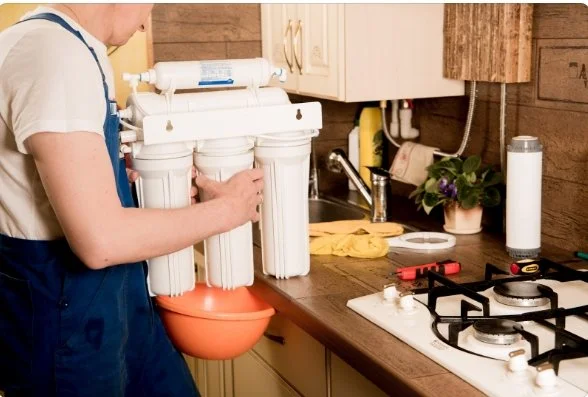Why Filter Your Water?
Essential Tips for Ensuring Drinking Water Quality
Clean, safe drinking water is essential for maintaining good health. Unfortunately, the water from our taps isn't always as pure as it should be. Contaminants like chlorine, lead, pesticides, and even pharmaceuticals can find their way into our water supply, posing potential health risks. This is why water filtering is crucial in ensuring you and your family have access to high-quality drinking water. Here are some essential tips for understanding water filtration's importance and choosing the best system.
The Importance of Filtering Your Water
1. Removing Contaminants:
Tap water can contain various contaminants, including heavy metals like lead and mercury, chemicals like chlorine and chloramine, pesticides, and even bacteria and viruses. A good water filter can effectively remove these harmful substances, making your water safer to drink.
2. Improving Taste and Odor:
Chlorine, used as a disinfectant in many municipal water supplies, can leave an unpleasant taste and odor in your water. Filtering your water can remove these impurities, resulting in better-tasting and more enjoyable drinking water.
3. Protecting Your Health:
Long-term exposure to specific contaminants in drinking water can lead to serious health issues, including gastrointestinal diseases, reproductive problems, and neurological disorders. Filtering your water reduces these risks by removing or significantly reducing harmful contaminants.
4. Environmental Benefits:
Using a home water filter reduces the need for bottled water, decreasing plastic waste and the carbon footprint associated with producing, transporting, and disposing of plastic bottles.
Types of Water Filters
There are several types of water filters available, each designed to target different contaminants and fit various needs and budgets:
1. Activated Carbon Filters:
These are among the most common and affordable types of water filters. They effectively remove chlorine, sediment, and volatile organic compounds (VOCs) and improve taste and odor. However, they may not remove heavy metals, fluoride, or microorganisms.
2. Reverse Osmosis (RO) Filters:
RO systems use a semi-permeable membrane to remove many contaminants, including heavy metals, fluoride, nitrates, and bacteria. They are highly effective but can be more expensive and waste significant water during filtration.
3. Ultraviolet (UV) Filters:
UV filters use ultraviolet light to kill bacteria and viruses. Since they do not remove chemical contaminants or particulates, they are often used with other filters.
4. Distillation Systems:
Distillation involves boiling water and condensing the steam into liquid form, leaving most contaminants behind. This method effectively removes many contaminants, including heavy metals and minerals, but can be slow and require significant energy.
5. Ceramic Filters:
These filters use a porous ceramic material to trap contaminants. They are effective at removing bacteria, sediment, and protozoa but may be less effective at removing chemical contaminants.
Choosing the Right Water Filter
When selecting a water filter, consider the following factors:
1. Water Quality:
Have your water tested to determine which contaminants are present. This will help you choose a filter that effectively targets those specific impurities.
2. Filtration Needs:
Consider whether you need a whole-house system, a point-of-use system (like a countertop or under-sink filter), or a portable option (such as a pitcher filter).
3. Budget:
Water filters vary widely in cost, from inexpensive pitcher filters to more costly reverse osmosis systems. Determine your budget and find a filter that offers the best value for your money while meeting your filtration needs.
4. Maintenance:
All filters require regular maintenance, such as replacing cartridges or cleaning components. Consider the ease of maintenance and the cost of replacement parts when choosing a filter.
Conclusion
Ensuring the quality of your drinking water is crucial for your health and well-being. Understanding the importance of water filtration and choosing the right system for your needs can provide your family with safe, clean, and great-tasting water. Invest in a quality water filter today and take a significant step towards a healthier lifestyle.

